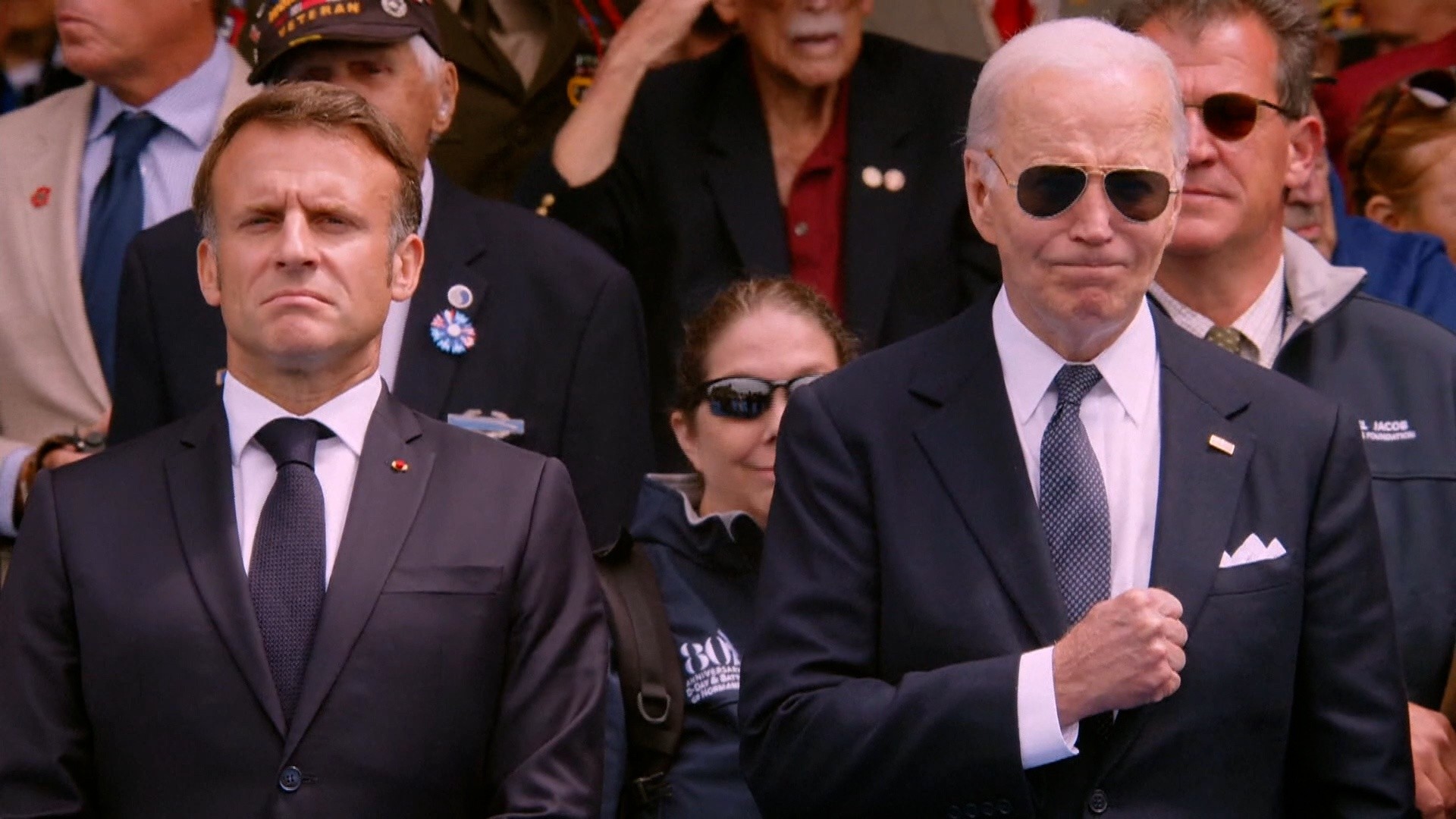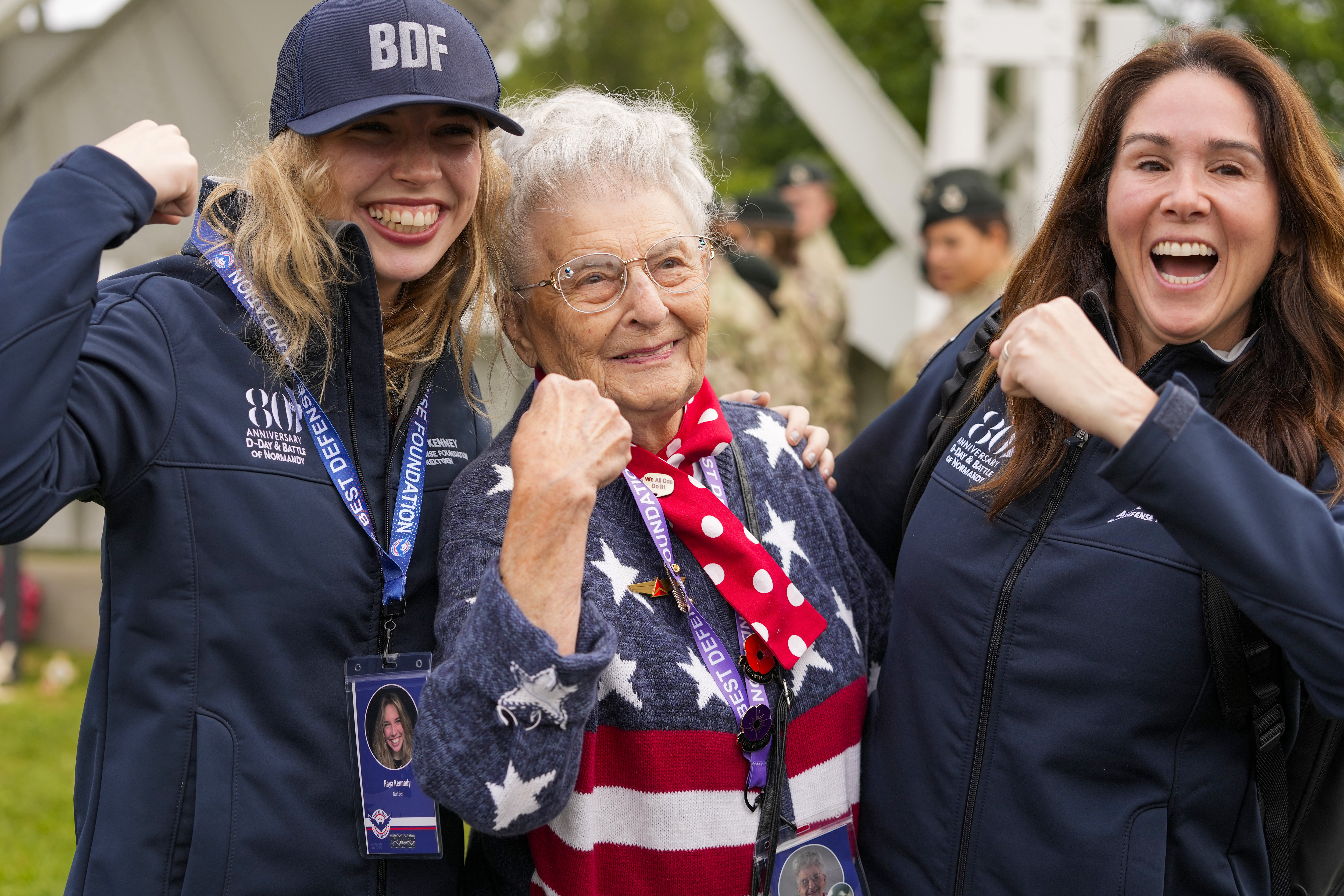Alfred Consigli was one of seven brothers from Milford, Massachusetts, who fought in World War II. On the 80th anniversary of D-Day, the 100-year-old shared many of his memories of his time on the frontlines.
“I get the letter from the government to report at 17 years old for a physical to go into the service, as soon as you turn 18 you went in,” said Consigli, who now lives Upton. “I never rode in a train in my life. I was never in Boston, I was so scared. They flunked me! I come home and told Ma, 'They don’t want me! They don’t want me!' But then after a while they called me in again and the officer made a huge mistake. He says to me, ‘Do you like guns?’ I say ‘Yes, I like guns,' 'cause I had a 22 when I was 15 years old.”
WATCH ANYTIME FOR FREE
>Stream NBC10 Boston news for free, 24/7, wherever you are. |
Consigli was drafted to General George Patton’s “Blackcat” Tank Battalion.
“You know how many rounds I fired? From different tanks, almost 8,000. Yea. That’s why I can’t hear.”
Get updates on what's happening in Boston to your inbox. Sign up for our >News Headlines newsletter.
Consigli took dozens of wartime photos that give a unique glimpse into life on the frontlines.
“We had to go look for Nazis in all the buildings. I went into one store, I found a suitcase full of cameras, one 35mm film and one 20s,” said Consigli. “I gave some away and one of the GIs in my company gave me a Thompson Machine gun for one camera.”
He enlarged many of the pictures and attached them to cardboard to share his memories.
Some are slices of life, like a soldier getting a haircut next to a tank, and the various characters he met in the army.
“He used to play a guitar at basic training. He’d sing a song, ‘Bright lights on Broadway, moonlight down in Dixie. We’ll have moonshine in them North Carolina hills.' He used to sing that song,” said Consigli as he pointed to a soldier in a photograph.
He experienced several close calls with German troops.
“One day we pulled in a tank in a small town. I says to the guy, I’m going into a barn to sleep. I didn’t want to sleep in the tank,” said Consigli. “Then in the morning I hear footsteps up there. Infantry come down with two Germans. He says ‘Look who was sleeping with you upstairs.’ He said they had guns, too. They were up there when I was there. They could have shot me.”
More on D-Day
Eighty years later, he remembers his orders in Normandy vividly.
“We landed at Utah Beach and we were in France. Officer comes on the radio: Platoon adjust, tank number six, charge five, fuse quick, base deflection…fire when ready. Two rounds I knocked it out,” recalled Consigli. “He sent another tank down there. All of a sudden I hear get out, get out. They knocked that tank out. That would have been us.”
Many of the memories that came to mind are of the lives lost and the morbid experiences soldiers had on the battlefield.
“You should have seen all the Americans and Germans all over the place. I remember that like nothing.”
He also recalled finding a German soldier’s body with a picture of his bride in his pocket.
“They just got married,” said Consigli. “I felt bad.”
Asked what he wants people to think on the anniversary of D-Day, he said, “Well they shouldn’t have another war, I know that. All the people getting killed.”
Alfred Consigli has shared many of his stories at the American Heritage Museum where his service and the sacrifices of so many men are commemorated. The D-Day exhibit there says more than ten thousand Allied soldiers were killed, wounded and disappeared during the invasion of Normandy.
Get updates on what's happening in Boston to your inbox. Sign up for our News Headlines newsletter.




